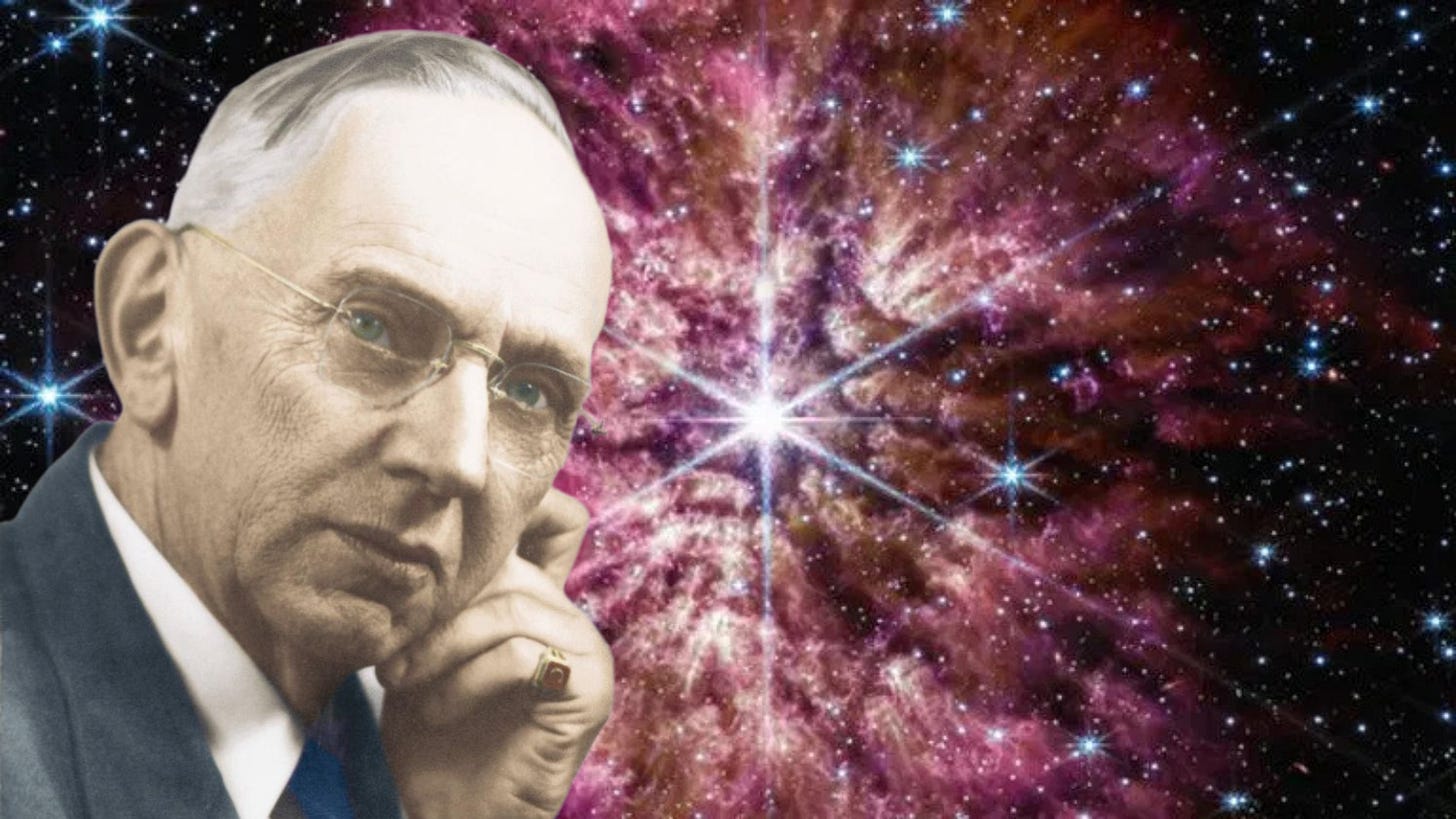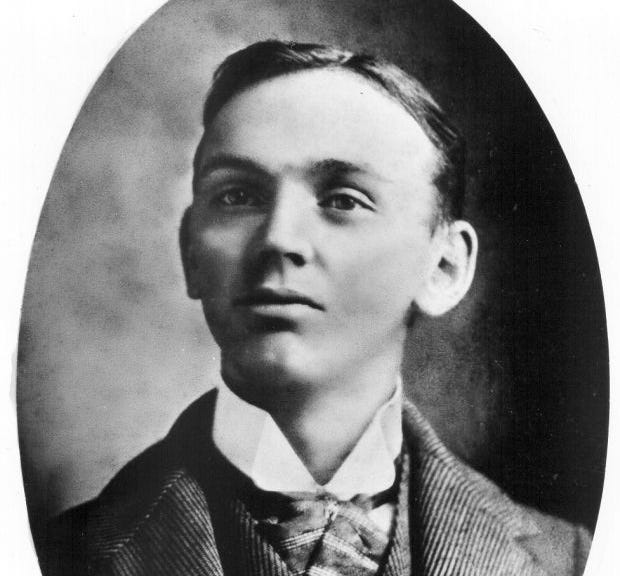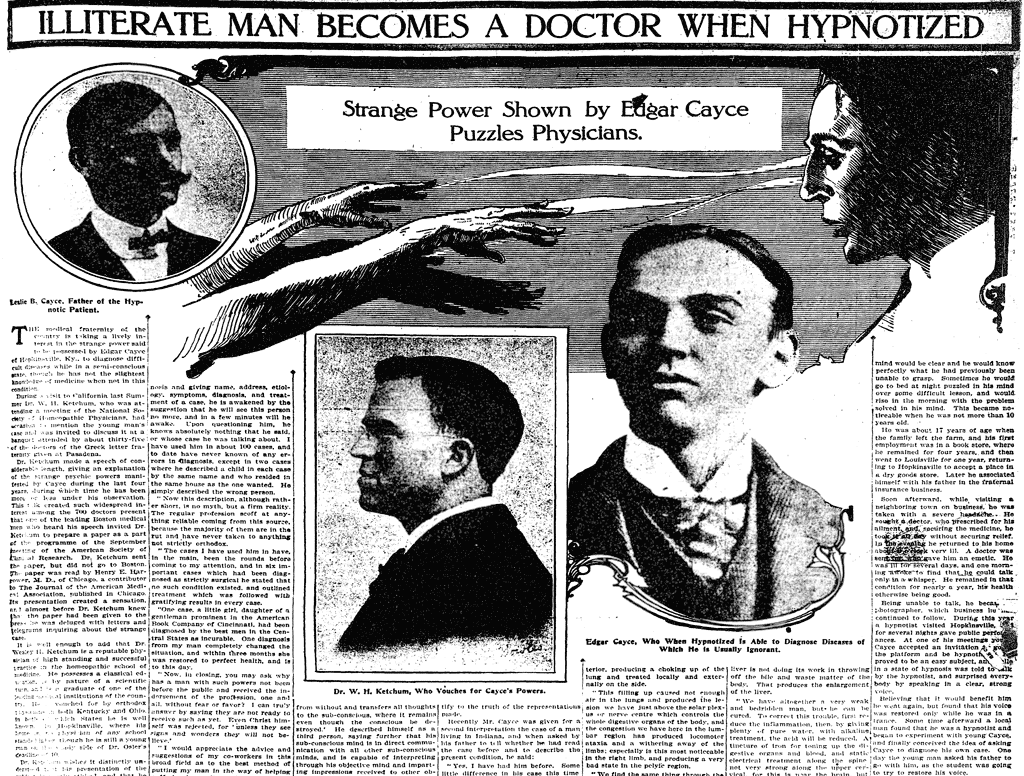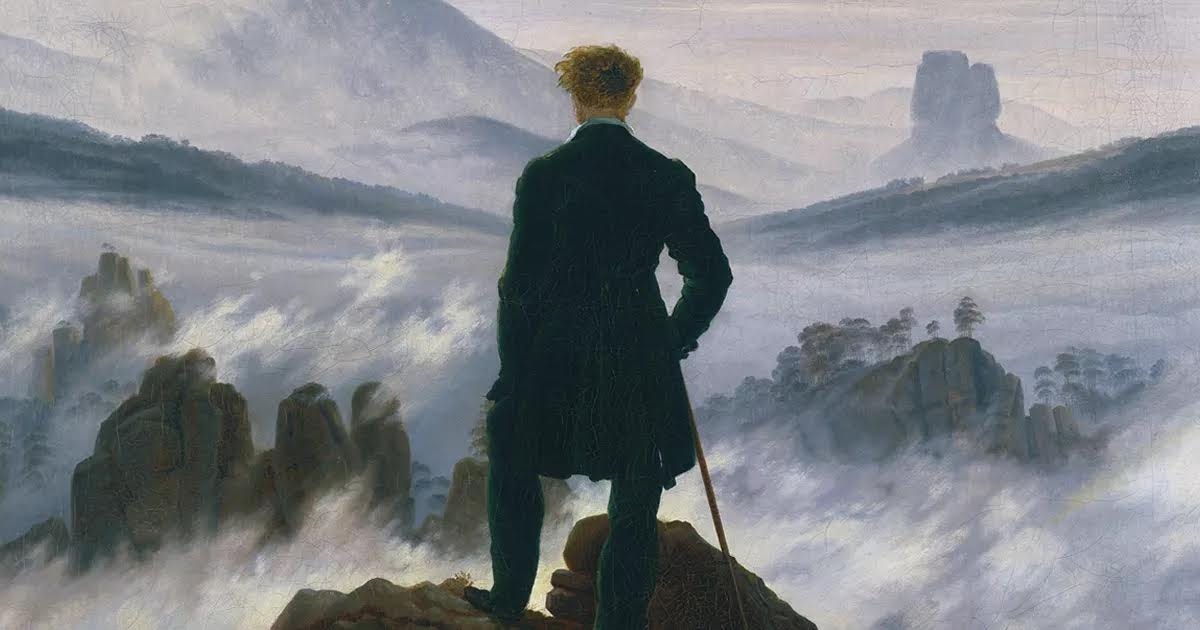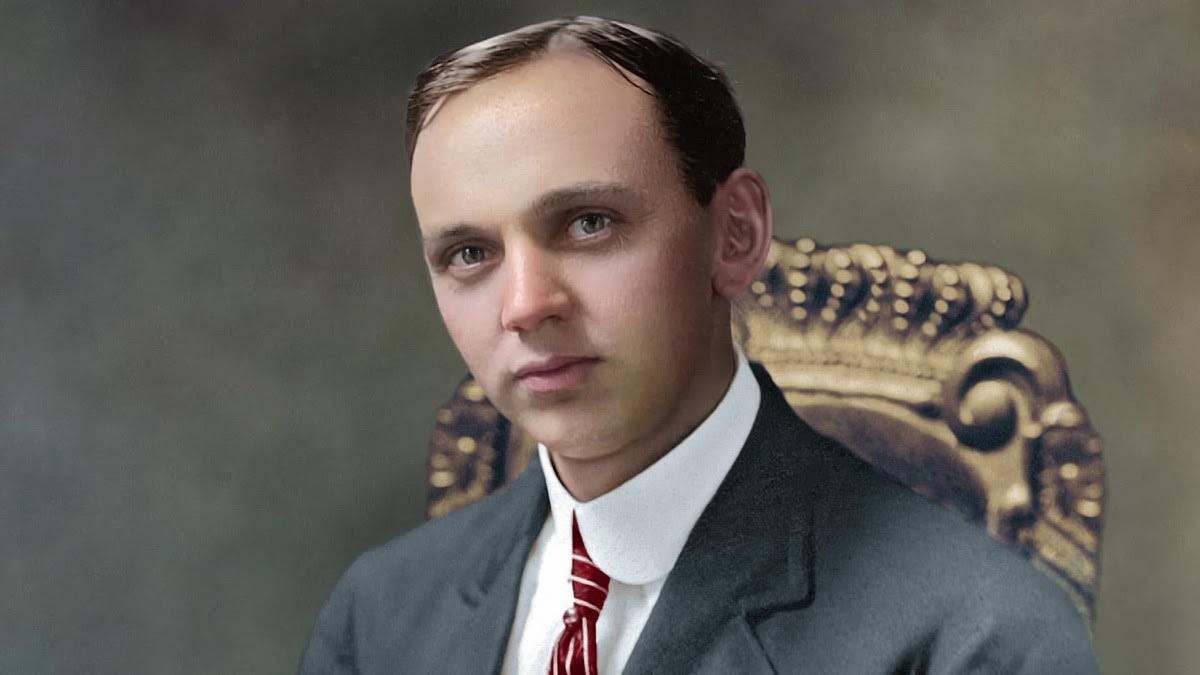Lessons From a Modern Mystic
Edgar Cayce could walk between worlds...
On March 18, 1877, in a modest Kentucky farmhouse, a boy was born who would become one of America's most extraordinary spiritual figures and would be known to millions as "The Sleeping Prophet."
He was a quiet, religious man who sold insurance and photographed babies. But when he laid down, closed his eyes, and entered a trance, he spoke with authority.
Diagnosing diseases, offering spiritual counsel, and predicting world events, all while in a sleep-like trance, Cayce tapped into something far beyond what the masses consider the ordinary.
Over the course of four decades, he gave more than 14,000 documented "readings" — each one recorded, transcribed, and archived. His words went on to influence everything from holistic medicine to reincarnation studies to New Age spirituality.
More consequential than his predictions, though, Cayce’s central message emphasized the true purpose of humanity…
Reminder: you can get tons of useful members-only content and support our mission for a few dollars per month 👇
Two new, full-length articles every single week
Access the entire archive of useful knowledge that built the West
Get actionable principles from history to help navigate modernity
Support independent, educational content that reaches millions
From Sunday School Teacher to Prophet
Cayce's story doesn't begin with fame or power. He grew up in a devout Christian family and, by his own account, began experiencing visions at a young age. For much of his early life, Cayce was more concerned with being a good Christian than with being mystical.
He taught Sunday school, read the entire Bible annually, and wrestled with the tension between his growing psychic abilities and his orthodox beliefs. As a teenager, he claimed he could absorb the contents of textbooks by sleeping on them.
The turning point came in his early twenties, when a mysterious case of laryngitis robbed him of his voice for over a year. Desperate for a cure, Cayce turned to a traveling hypnotist. Under hypnosis, Cayce entered a trance state, diagnosed his own condition, and recommended a treatment. When he awoke and followed the advice, his voice returned. This remarkable recovery transformed Cayce's life…
He discovered that while in this self-induced sleep-like state, he could diagnose illnesses in others, prescribe treatments, and even offer spiritual and philosophical guidance. He came to believe he was channeling knowledge from a universal consciousness — a "hall of records" beyond time and space.
As word of his abilities spread, the trance readings soon attracted widespread attention. Despite this growing fame, Cayce remained deeply uncomfortable with the spotlight, especially when asked to give predictions about world events or humanity's future. Yet he felt a divine calling to serve others and refused to exploit his gift financially.
He never charged for a reading, supporting himself instead with day jobs and accepting only voluntary donations. This humility, combined with the sheer volume and variety of his work, lent him rare credibility in a field often dominated by flamboyant tricksters.
Health, Prophecy, and Past Lives
The subjects of Cayce's readings spanned an impressive range. Most focused on health — he would diagnose people he had never met, often using complex medical terminology he couldn't understand while awake.
His suggested treatments pioneered a holistic approach long before the term became fashionable: he prescribed castor oil packs, dietary changes, spinal adjustments, and anticipated many modern trends in natural medicine. Countless patients reported relief and healing from his readings.
Beyond the physical, many readings delved into metaphysical territory. Cayce spoke of reincarnation, past lives, and karmic debts carried through centuries. He described previous incarnations of clients in ancient Egypt, Persia, and the mythical Atlantis.
According to Cayce, souls unfold over many lifetimes, and physical illness often stemmed from spiritual or emotional imbalances. This seeming blend of Eastern philosophies with Christian theology raised eyebrows — but it also attracted seekers hungry for a more expansive understanding of the ultimate truth.
Among his most remarkable forecasts was the 1929 stock market crash. His readings also predicted technological innovations and climate changes. Warning of potential catastrophe, he cautioned that unless humanity underwent a spiritual shift, massive earth changes would occur — pole shifts, rising seas, natural disasters. Some believe his pole shift predictions are coming true now…
He believed these events weren't fixed destinies but warnings contingent on our collective spiritual development. Not all predictions materialized; he claimed San Francisco and L.A. would be destroyed by earthquakes in 1936 and the re-emergence of Atlantis. Skeptics point to these failed prophecies as evidence of fraud or delusion, while believers interpret them as possible symbolic events or as events whose timelines are still unfolding.
Spiritual Transformation Over Worldly Success
Despite this, Cayce never strayed from his central message: we are spiritual beings having a physical experience — and love, service, and inner transformation matter more than worldly success.
He encouraged meditation, forgiveness, proper nutrition, regular prayer, and living harmoniously with the laws of nature and spirit. In his view, illness represented not just physical breakdown but often the manifestation of spiritual imbalances.
In 1931, Cayce established the Association for Research and Enlightenment (A.R.E.) in Virginia Beach, Virginia. This organization became the official repository for his readings and the nucleus of a growing community of followers, researchers, and spiritual seekers.
A few years later, he opened a holistic hospital nearby, dedicated to treating patients using methods prescribed in his readings. Though financial pressures cut the hospital's life short, the A.R.E. flourished and continues to thrive today, offering classes, healing sessions, dream interpretation workshops, and spiritual retreats for those drawn to Cayce's teachings.
A Modest Prophet in an Age of Charlatans
What continues to puzzle many is how little Cayce ever profited from his remarkable gifts. In an era rife with spiritual charlatans, he lived modestly. For Cayce, the readings represented not a path to fame but a sacred responsibility.
Yet Cayce's work helped shape the entire landscape of 20th-century metaphysical thought. His emphasis on holistic healing anticipated the integrative medicine movement by decades. His references to chakras, energy fields, and soul evolution laid groundwork for what would later become New Age spirituality, which has since become a twisted shell of its original foundation.
His ideas about reincarnation influenced writers, psychologists, and religious reformers. At a time when science and religion seemed increasingly at odds, he became a symbol of a bridge between the two.
Critics remain, naturally. Skeptical researchers have suggested unconscious fraud, self-delusion, or heightened suggestibility. They note his Christian biases and occasional inconsistencies. Some argue he may have been tapping into his subconscious mind rather than any universal consciousness.
Yet even among skeptics, there's often acknowledgment of Cayce's sincerity — he was a man seemingly genuine in his commitment to helping others, guided by a personal sense of divine purpose.
Why Cayce’s Works Still Resonate Today
What continues to draw people to Cayce isn't just his predictions or medical suggestions, but the coherent worldview he offered. In our increasingly fragmented and disenchanted culture, Cayce proposed a vision of reality that was whole and compassionate.
He taught that every soul has purpose, suffering carries meaning, and the divine exists both within and beyond us. His voice — calm and clear in trance — still resonates today: not just in forecasts of Atlantis or warnings of catastrophe, but in the daily invitation to live with love, humility, and intention.
Edgar Cayce died on January 3, 1945, exhausted by years of service. He had given two readings a day, six days a week, for over 40 years. He believed he would be reincarnated again in America in the early 21st century. Whether that prophecy came true matters less than the spiritual seeds he planted. His legacy lives on in the thousands who study his readings, apply his health remedies, or embark on their own inner search for truth.
If Cayce's life teaches anything, it's that the boundary between the mystical and the mundane is far thinner than we imagine, and that any one of us have the ability to go beyond that cosmic veil.



